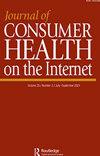Can TikTok Provide Reliable Information about Orthodontics for Patients?
IF 0.7
Q4 PUBLIC, ENVIRONMENTAL & OCCUPATIONAL HEALTH
引用次数: 3
Abstract
Abstract The aim of this study was to investigate the quality and reliability of the information about orthodontics on TikTok by analyzing the related videos using DISCERN tool and Global Quality Scale. Five orthodontic-related “hashtags” were searched, and a total of 250 video posts were reviewed. Non-English and inappropriate content/quality posts were excluded from the study. The videos were evaluated by using Quality Criteria for Consumer Health Information (DISCERN) toolkit and Global Quality Scale (GQS). Most of the posts were posted by dental professionals (68 posts; 55%), followed by dental clinics (23 posts; 19%), layperson (18 posts; 15%), and technician/dental laboratories (13 posts; 11%). The mean DISCERN score (section 1 + section 2) for 122 posts was 38.7/75. The mean overall quality of the 122 posts (section 3) in the DISCERN toolkit was 3.15/5. The average GQS score of 122 posts was 3.18 ± 0.93. The DISCERN and GQS scores did not have significant differences among the groups (p > 0.05). The DISCERN and GQS results of evaluated TikTok video posts were moderate quality. DISCERN and GQS scores did not differ significantly between the groups. Orthodontists should warn their patients about the reliability of information on social media platforms and should guide them to the right resources.TikTok能为患者提供可靠的正畸信息吗?
摘要本研究的目的是通过使用DISCERN工具和全球质量量表分析相关视频,调查TikTok上有关正畸信息的质量和可靠性。搜索了五个与正畸相关的“标签”,共审查了250个视频帖子。非英语和内容/质量不合适的帖子被排除在研究之外。使用消费者健康信息质量标准(DISCERN)工具包和全球质量量表(GQS)对视频进行评估。大多数职位由牙科专业人员担任(68个职位;55%),其次是牙科诊所(23个职位;19%)、非专业人员(18个职位;15%)和技术员/牙科实验室(13个职位;11%)。DISCERN平均得分(第1节 + 第2款)为38.7/75。DISCERN工具包中122个员额(第3款)的平均总体质量为3.15/5。122个职位的GQS平均得分为3.18 ± 0.93。DISCERN和GQS评分在各组之间没有显著差异(p > 0.05)。评估的TikTok视频帖子的DISCERN和GQS结果为中等质量。两组之间的DISCERN和GQS评分没有显著差异。正畸医生应该提醒患者社交媒体平台上信息的可靠性,并引导他们获得正确的资源。
本文章由计算机程序翻译,如有差异,请以英文原文为准。
求助全文
约1分钟内获得全文
求助全文
来源期刊

Journal of Consumer Health on the Internet
PUBLIC, ENVIRONMENTAL & OCCUPATIONAL HEALTH-
CiteScore
1.30
自引率
12.50%
发文量
32
期刊介绍:
The Journal of Consumer Health on the Internet is the only professional peer-reviewed journal devoted to locating consumer health information via the Internet. In this journal librarians and health information providers describe programs and services aimed at helping patients and the general public find the health information they need. From the Editor: "Studies have shown that health information is one of the major reasons that people worldwide access the Internet. As the amount of health information on the Web increases exponentially, it becomes critical that librarians-including public and medical librarians-be knowledgeable about what is available online and be able to direct users to reliable, accurate, quality information."
 求助内容:
求助内容: 应助结果提醒方式:
应助结果提醒方式:


